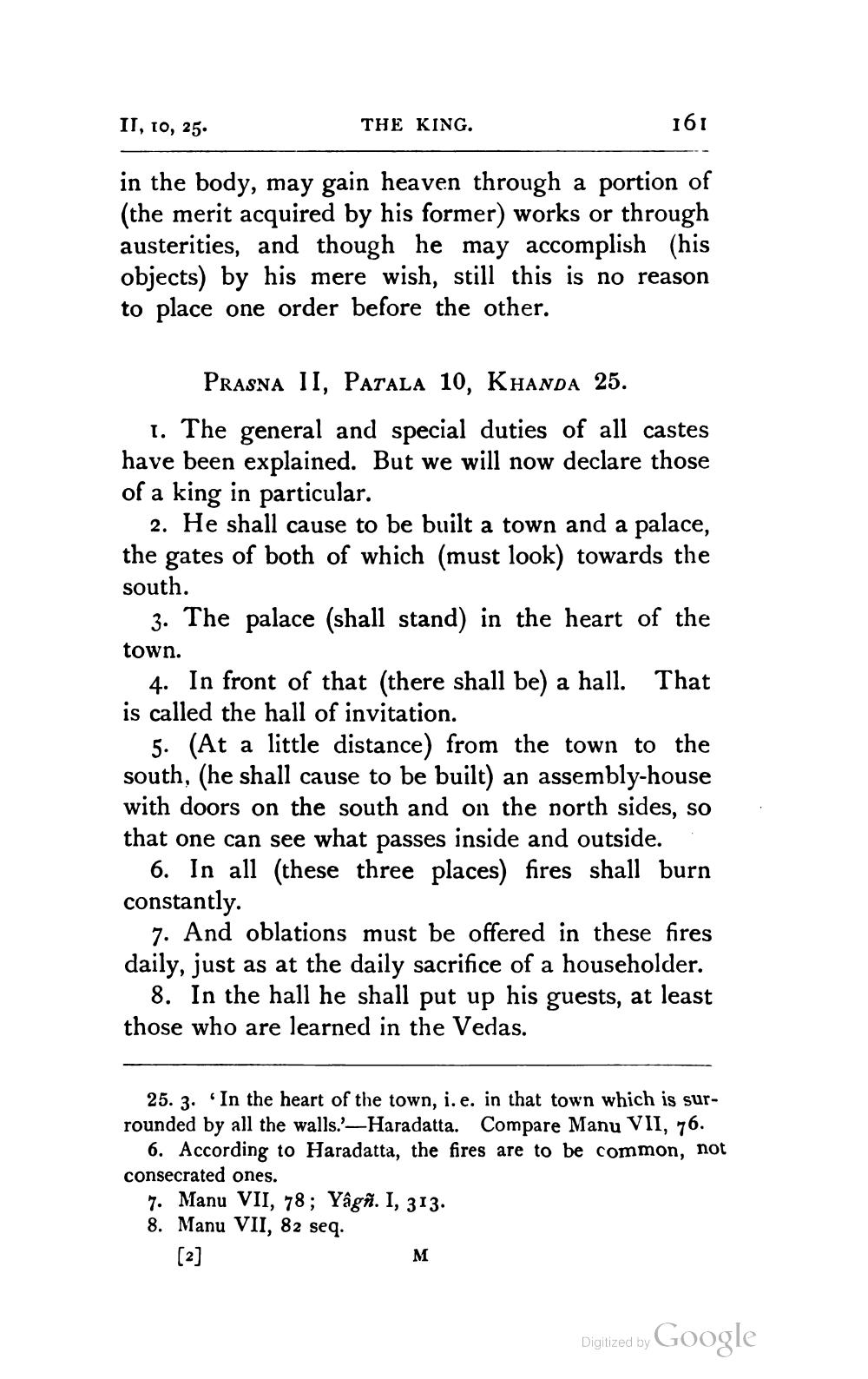________________
II, 10, 25.
THE KING.
in the body, may gain heaven through a portion of (the merit acquired by his former) works or through austerities, and though he may accomplish (his objects) by his mere wish, still this is no reason to place one order before the other.
161
PRASNA II, PATALA 10, KHANDA 25.
1. The general and special duties of all castes have been explained. But we will now declare those of a king in particular.
2. He shall cause to be built a town and a palace, the gates of both of which (must look) towards the south.
3. The palace (shall stand) in the heart of the
town.
4. In front of that (there shall be) a hall. That is called the hall of invitation.
5. (At a little distance) from the town to the south, (he shall cause to be built) an assembly-house with doors on the south and on the north sides, so that one can see what passes inside and outside.
6. In all (these three places) fires shall burn constantly.
7. And oblations must be offered in these fires daily, just as at the daily sacrifice of a householder.
8. In the hall he shall put up his guests, at least those who are learned in the Vedas.
25. 3. In the heart of the town, i. e. in that town which is surrounded by all the walls.'-Haradatta. Compare Manu VII, 76.
6. According to Haradatta, the fires are to be common, not consecrated ones.
7. Manu VII, 78; Yâgn. I, 313.
8. Manu VII, 82 seq.
[2]
M
Digitized by
Google




